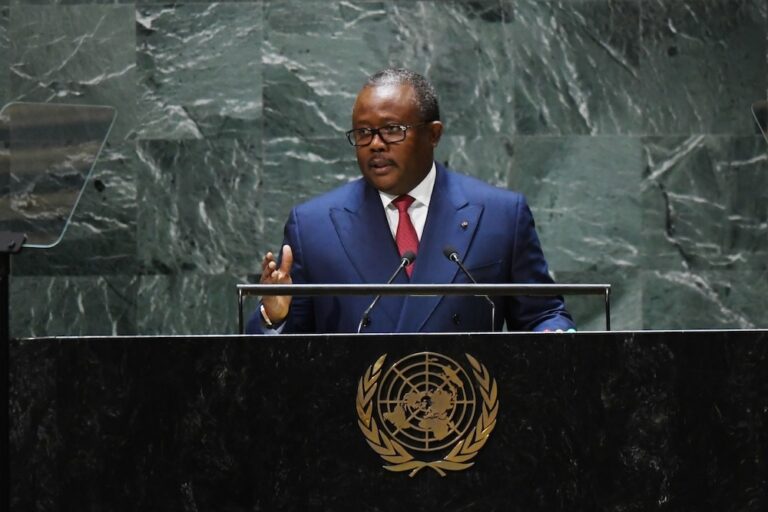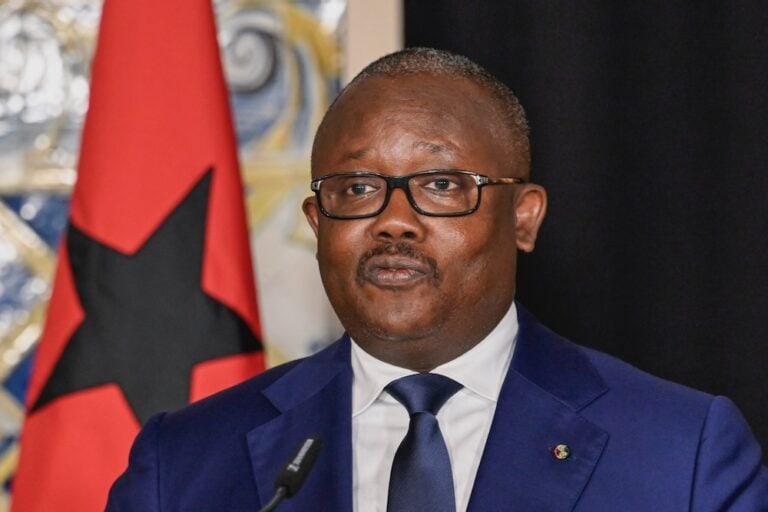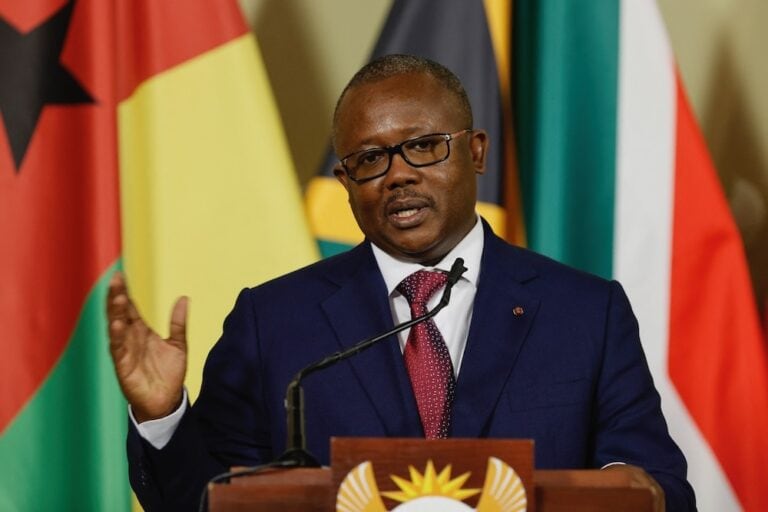(RSF/IFEX) – In a letter to State Prosecutor Caetano N’Tchama, RSF protested the arrests of João de Barros, the daily “Diário de Bissau”‘s publication director, and his colleague Athizar Mendes. RSF urged the prosecutor to take the necessary measures to ensure that the journalists are released immediately. “The press freedom situation in Guinea-Bissau continues to […]
(RSF/IFEX) – In a letter to State Prosecutor Caetano N’Tchama, RSF protested the arrests of João de Barros, the daily “Diário de Bissau”‘s publication director, and his colleague Athizar Mendes. RSF urged the prosecutor to take the necessary measures to ensure that the journalists are released immediately. “The press freedom situation in Guinea-Bissau continues to deteriorate,” stated Robert Ménard, the organisation’s secretary-general. “The state prosecutor is systematically attacking the country’s independent press, whose very existence is seriously threatened today,” added Ménard.
According to information collected by RSF, de Barros and Mendes were arrested on 14 November 2001 by order of the state prosecutor. The two journalists were taken to the central police station in Bissau. No explanation was provided to explain the motive for the arrests. On 27 October, N’Tchama ordered the indefinite closure of the private daily “Diário de Bissau” and the private weekly “Gazeta de Noticias” because of “irregular activities.” The prosecutor also accused the publications of disturbing the country’s “peace and stability” and “violating official secrets.” That same day, the state prosecutor openly threatened to close the private radio stations Bombolom-FM and Radio Pidjiquiti unless they straightened out “their administrative and legal situation within fifteen days” (see IFEX alert of 5 November 2001).
RSF also recalled that on 17 June, de Barros and Mendes were briefly detained by Guinea-Bissau’s secret police. They were accused of publishing an article titled “Kumba Yala and corruption”, in which the president was accused of being “principally responsible for corruption in the country”.


